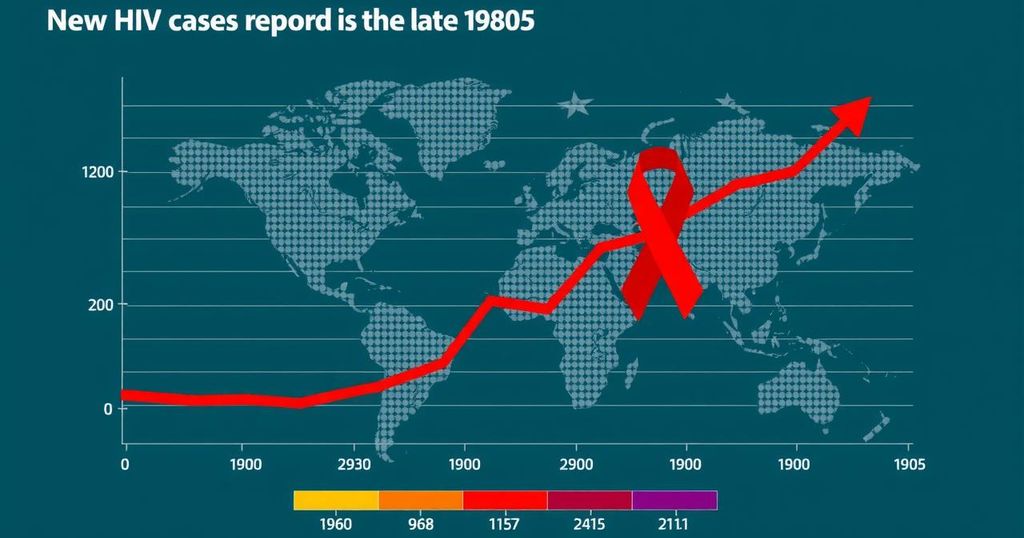The UNAIDS report reveals that 2023 marked the lowest number of new HIV cases since the late 1980s, with approximately 1.3 million new infections, though this is still above the UN’s goal for 2030. The number of AIDS-related deaths dropped to 630,000. However, access to preventive treatments like PrEP remains limited, with ongoing discrimination posing challenges to public health initiatives.
According to a recent report by UNAIDS, 2023 witnessed the lowest number of newly contracted HIV cases since the emergence of the disease in the late 1980s, with approximately 1.3 million individuals affected. However, this decline is insufficient to meet the United Nations’ goal of eliminating AIDS as a public health crisis by 2030, with new infections still surpassing the required figures. Furthermore, despite significant advances leading to the lowest AIDS-related deaths since 2004, the report highlights ongoing challenges, including inadequate access to preventive treatments like Pre-Exposure Prophylaxis (PrEP).
The report indicates that approximately 630,000 people died from AIDS-related illnesses in the previous year, representing substantial progress from a peak of 2.1 million casualties in 2004. While antiretroviral treatments have played a vital role in managing the virus, around 9.3 million out of nearly 40 million individuals living with HIV globally are not receiving necessary treatment. Despite progress on a global scale, there were increases in HIV infections in 28 countries, attributed partly to slow advancements in making PrEP accessible.
The UNAIDS report comes in the context of the ongoing global fight against HIV/AIDS, emphasizing the importance of biomedical advancements, human rights protection, and community efforts in reducing infections and fatalities. Despite improvements, the report underscores significant gaps, particularly in nations with discriminatory laws impacting HIV visibility and treatment. The report underscores the need for equitable access to life-saving treatments like lenacapavir while also emphasizing the adverse effects of criminalization and stigma on public health outcomes. With World AIDS Day approaching, awareness and advocacy for better healthcare policies are crucial to ensure that new treatments reach those most in need, regardless of economic status or sexual orientation.
In summary, while UNAIDS reports a historical decline in new HIV infections and deaths, the challenges presented show that sustained efforts and significant changes in accessibility to treatment are necessary to achieve the United Nations’ target of ending AIDS by 2030. Combating stigma, improving healthcare access, and ensuring the widespread availability of innovative treatments are paramount for maintaining progress against this public health threat. Efforts must now focus on bridging the gaps that remain, ensuring that all individuals, especially in high-prevalence regions, receive adequate access to preventive and therapeutic treatments.
Original Source: www.seychellesnewsagency.com






